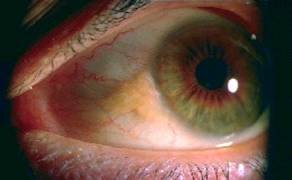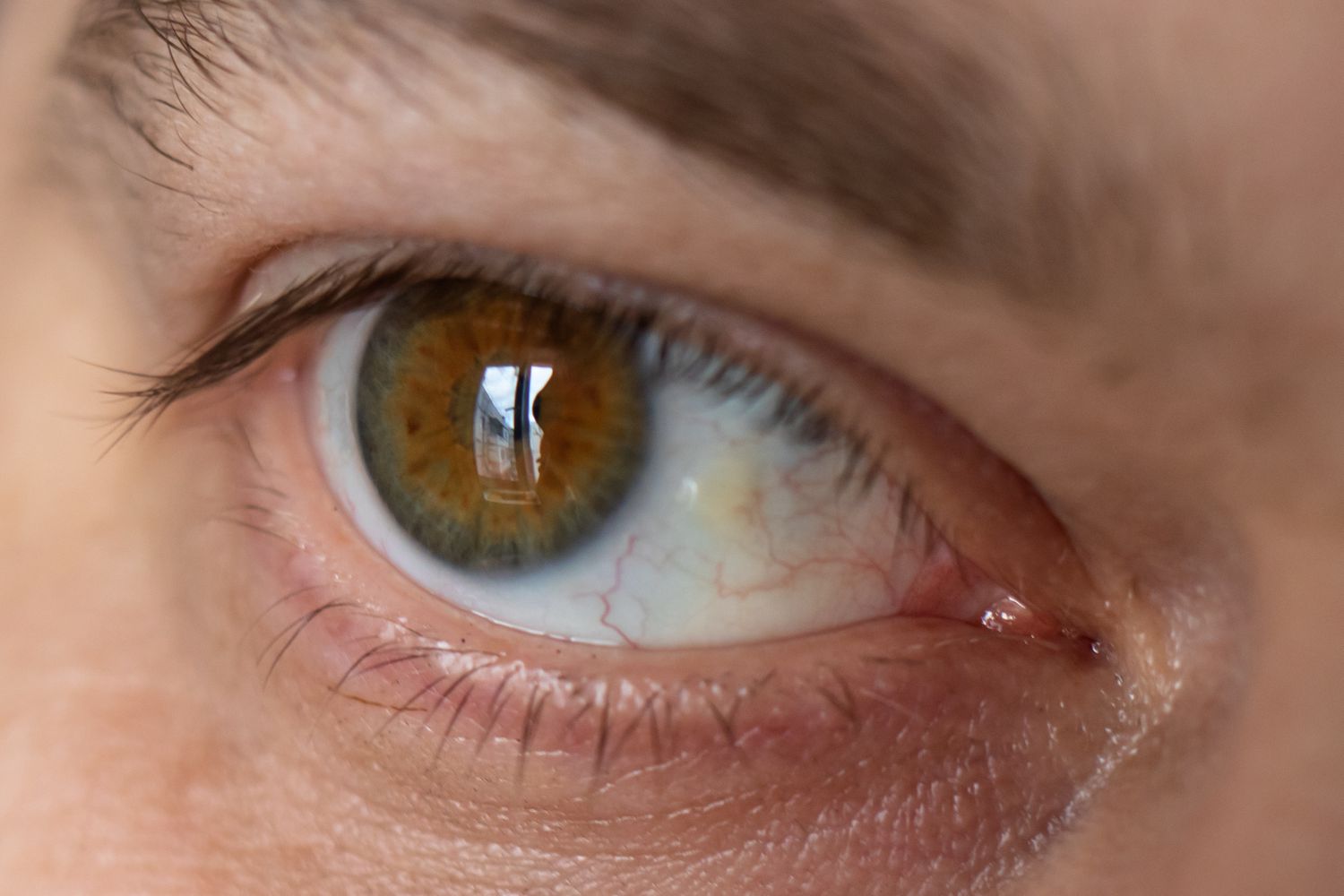Pinguecula Symptoms

If you have ever had a pinguecula, you probably know that they are a yellowish, slightly raised lesion on the white part of the eye, near the edge of the cornea. They tend to develop on people who spend long hours in the sun, or in those who wear contact lenses on a regular basis. These lesions are very common in middle-aged and elderly people, but they can also develop in children without any protection.
Pinguecula is typically asymptomatic in the early stages and often goes away on its own. It is a sign of aging, particularly in men, and is likely to be the result of occupational exposure to sunlight or UV light. In the late 70s, almost every individual will have symptoms of pinguecula, but a diagnosis can take years. This disease can affect one or both eyes and can be painful.
It is important to know that the exact symptoms of pinguecula vary from person to person. For mild cases, lubricating eye drops or steroid or nonsteroidal anti-inflammatory drugs are prescribed. For moderate or severe cases, your doctor may consider surgical removal of the pinguecula. If it is interfering with your vision or your ability to blink properly, it can cause serious problems. For some people, the pain is so painful that they may decide to use contact lenses or suffer a worse cosmetic effect.
At a later stage, the symptoms of pinguecula may become more severe. The disease may appear as a white bump on the surface of the eye. This is a non-cancerous condition that usually appears near the nose. Those who are at high risk of developing pinguecula should contact the website https://handaldok.com immediately. If it becomes inflamed, the inflammation can be painful. In more severe cases, surgery may be recommended for treatment.

Treatment of pinguecula is necessary. In most cases, no treatment is needed, but if it is very painful, your eye doctor may recommend artificial tears or steroid eye drops. These eye drops will help relieve the foreign body sensation and help you see. Depending on the severity of the condition, a slit lamp can also be used to distinguish a pinguecula from a pterygium, a similar growth on the white of the eye.
Symptoms of pinguecula are uncommon. However, you should contact your doctor if you experience any of these symptoms. Although the pinguecula is generally harmless, it can cause discomfort and irritability. If it becomes inflamed or painful, it is recommended to see a doctor. If the condition worsens, surgery may be required. If your symptoms are severe, you may need to see a doctor.
Symptoms of pinguecula may vary depending on the cause. If it is associated with exposure to unprotected sunlight, it may be a hereditary condition or an accidental birth. It can occur in young children as a result of injury to the child's eye or a family history of the condition. If you are concerned about your symptoms, see your doctor as soon as possible for an accurate diagnosis. If it is a benign condition, eye drops will relieve pain and inflammation.
If you are prone to UV exposure, you may want to consult your doctor. Unlike many diseases, pinguecula is not dangerous. They may cause eye irritation but rarely cause discomfort. If you suffer from any of the following symptoms, see your doctor as soon as possible. You may even need surgery to remove the pinguecula. But don't worry if you don't have any symptoms.
Symptoms of pinguecula can include redness, swelling, and discomfort in the eye. In most cases, pinguecula doesn't cause any pain or discomfort. Occasionally, it may cause irritation, but there is no reason to worry. Using lubricating eye drops can alleviate your symptoms. If your pinguecula becomes inflamed or uncomfortable, you should seek a doctor for a consultation.
If you have a pinguecula, it's important to see a doctor as soon as possible. It is important to avoid prolonged exposure to the sun to prevent pingueculae from growing. You should also protect your eyes from dust and the sun's ultraviolet rays. If you are in an area prone to exposure to the sun, you should take appropriate precautions to protect your eyes from damage.


